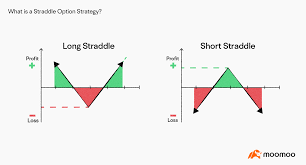What is Real World Asset Tokenization?
Real World Asset Tokenization is the digital process of converting tangible assets—such as real estate, commodities, private equity, or physical collectibles—into blockchain-based tokens. These tokens represent ownership rights or claims to real, physical assets and can be bought, sold, or traded on digital platforms.
This process connects the world of traditional finance (TradFi) with decentralized technologies, allowing investors to interact with real-world assets in a transparent, efficient, and globally accessible way.
How Does Real World Asset Tokenization Work?
The tokenization of real-world assets involves several essential steps:
-
Asset Selection: First, a physical or financial asset is chosen that has tangible value—such as a house, company shares, or a gold reserve.
-
Legal Structuring: A legal wrapper, often a Special Purpose Vehicle (SPV), is created to define ownership and ensure regulatory compliance.
-
Blockchain Integration: Smart contracts are developed to manage the issuance, transfer, and compliance of the token.
-
Token Creation: Digital tokens are minted on a blockchain to represent fractional ownership or rights to the asset.
-
Listing and Trading: Tokens are listed on centralized or decentralized exchanges, enabling liquidity and transferability.
Each token serves as a digital proof of ownership, supported by legal agreements that tie it to the real-world asset.
What Assets Can Be Tokenized?
Real World Asset Tokenization can be applied to a broad range of asset classes:
-
Real Estate: Residential or commercial buildings, land, or rental properties.
-
Commodities: Gold, oil, silver, and other natural resources.
-
Private Equity: Shares in startups or private companies.
-
Debt Instruments: Loans, bonds, and receivables.
-
Luxury Goods: Artworks, vintage cars, high-end watches, and even wine collections.
This flexibility allows both institutional and retail investors to diversify portfolios in ways that were previously limited to the wealthy or well-connected.
Why is Tokenizing Real World Assets So Important?
Real World Asset Tokenization is transforming how we invest and manage traditional assets. Key benefits include:
-
Increased Liquidity: Assets like real estate, which are typically illiquid, can be broken into smaller tokenized units and traded more easily.
-
Fractional Ownership: Investors can own small portions of high-value assets, reducing the barrier to entry.
-
Faster Settlements: Blockchain enables near-instant transaction processing, compared to days or weeks in traditional finance.
-
Global Accessibility: Anyone with internet access can participate in global investment opportunities.
-
Improved Transparency: Smart contracts and blockchain ledgers ensure clear audit trails and reduced fraud.
These benefits make tokenized assets more efficient, inclusive, and adaptable to the digital economy.
What Are the Challenges of Real World Asset Tokenization?
Despite its promise, the tokenization of RWAs also presents challenges:
-
Regulatory Uncertainty: Laws surrounding digital securities vary by jurisdiction, creating compliance complexity.
-
Asset Verification: Ensuring that the token truly represents a real, valuable asset requires trustworthy custodianship and legal enforcement.
-
Valuation Volatility: Illiquid assets can have fluctuating or hard-to-determine valuations.
-
Technology Barriers: Not all investors or institutions are familiar with blockchain platforms or smart contracts.
-
Custodial Risks: The physical asset must be stored and maintained properly to protect investor interests.
These issues must be carefully addressed to build trust and scale adoption.
Who is Leading the Way in RWA Tokenization?
Several platforms and companies are actively shaping the future of real-world asset tokenization:
-
Centrifuge: Connects RWAs like invoices and loans with DeFi platforms.
-
RealT: Offers tokenized U.S. real estate investments with weekly rental income.
-
Securitize: Provides compliant token issuance services for private companies and funds.
-
Ondo Finance: Facilitates tokenized exposure to U.S. Treasuries and institutional-grade assets.
-
Maple Finance: Specializes in credit and lending based on tokenized RWAs.
These platforms are building the infrastructure necessary for widespread token adoption.
How Will Tokenization Impact the Future of Finance?
Real World Asset Tokenization is not just a new tool—it represents a systemic change in how finance operates. It has the potential to:
-
Democratize Finance: Allow people from all backgrounds to access wealth-building assets.
-
Modernize Capital Markets: Increase efficiency and transparency in trading, clearing, and settlement.
-
Boost DeFi Utility: Allow decentralized protocols to interact with real-world value, enabling secure loans, staking, and liquidity options.
-
Reduce Costs: Cut out intermediaries and streamline legal processes.
As the global financial system increasingly shifts toward digital solutions, tokenization will be a foundational pillar.
Final Thoughts
Real World Asset Tokenization is revolutionizing the investment landscape by merging physical value with digital efficiency. From enabling fractional ownership in real estate to unlocking liquidity in commodities and debt, tokenization opens new doors for investors and institutions alike.
While challenges like regulation, custody, and technology adoption remain, the momentum is clear. As infrastructure and compliance frameworks mature, real-world asset tokenization is set to become a cornerstone of the future of finance.












Leave a Reply